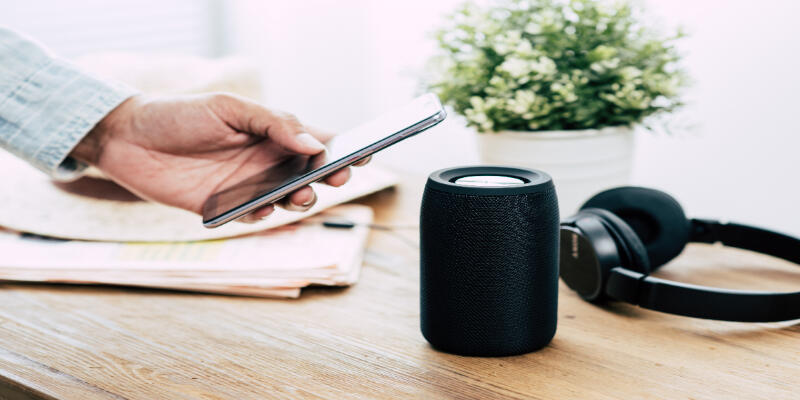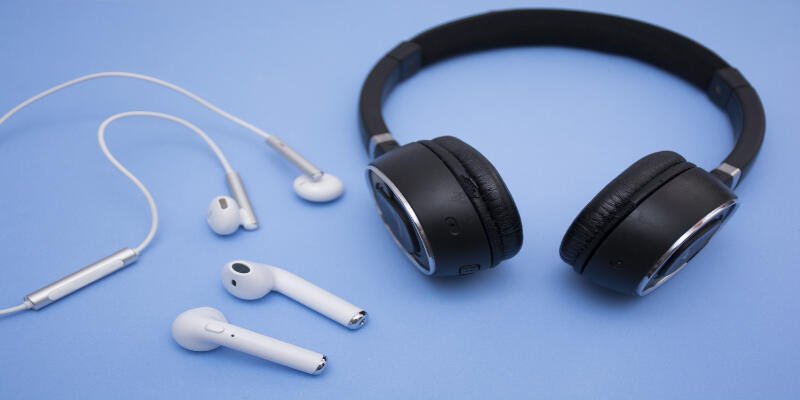Disclaimer: This post may contain affiliate links, meaning we get a small commission if you make a purchase through our links, at no cost to you. For more information, please visit our Disclaimer Page.
The ubiquitous nature of Bluetooth has made it a vital part of everyday life. If you have many devices that rely on Bluetooth, you might be wondering whether your Bluetooth devices can interfere with each other.
The fact is Bluetooth devices can interfere with each other. New Bluetooth devices are self-correcting and would change the wave frequency automatically in case of conflict. Older Bluetooth devices may not have this function, and therefore, might interfere with newer Bluetooth devices.
Keep reading to discover how Bluetooth devices interfere with each other, what to do about it, and how to clear your Bluetooth cache.
Don’t worry; it shouldn’t take more than a few minutes to get your Bluetooth device up and running.
Table of Contents
Can Bluetooth Interfere With Other Bluetooth?
Essentially, Bluetooth is a radio signal. Your Bluetooth devices work by sending signals on a 2.4 to 2.48 GHz frequency band.
The interference happens when too many devices are on the same frequency. So, when you have two or more nearby devices using Bluetooth, they can interfere with each other.
Wireless devices on the same wavelength may cause conflict. So, test and find out the source of interference. It may be your headphones, speakers, and earbuds. All can interfere with each other.
The strength of the signal depends on the device itself. For example, smartphones may send a stronger Bluetooth signal than a Bluetooth mouse.
However, Bluetooth interference is rare occurrence because the signals aren’t always strong enough to cause conflict, but it can also be common if you have a lot of devices.
Technologies such as frequency-hopping spread spectrum prevent Bluetooth interference.
It “hops” between a range of frequencies 1600 times per second and prevents two or more devices from staying on the same frequency. As a result, your device changes the channel before another device can interfere.
Even when a coincidence happens that two or more devices get on the same frequency, they won’t stay on it for long.
Another anti-interference Bluetooth technology is Adaptive Frequency Hopping. To simplify, imagine a TV with 79 channels.
You can’t watch a channel when somebody else is watching it. So, if you want to switch to a channel, you must ensure that nobody else is watching.
Adaptive Frequency Hopping checks the Bluetooth frequency before switching. If another device is on the same frequency, it’ll hop to another channel.
What Can Interfere With Bluetooth?
Any device using the 2.4GHz radio frequency will interfere with Bluetooth. However, the largest cause of Bluetooth interference WiFi. Other wireless networks can interfere as well.
WiFi networks operate on the 802.11b frequency, which is also within the 2.4GHz range. When your device is hopping between channels, it might switch to the 802.11b frequency. Sometimes, it’ll jump to the frequency used by the WiFi network, which causes Bluetooth and WiFi interference.
It’s almost like two conflicting waves in the sea colliding into each other. As a result, the signals get distorted, and the connection suffers a huge blow.
Electromagnetic waves from your microwave can also interfere with Bluetooth. These waves disrupt the 2.4GHz wavelength, like a pebble disrupting the peaceful surface of a lake. Just passing by a running microwave could cause that disruption.
Some fluorescent lights emit similar electromagnetic waves that interfere with Bluetooth as well.
Since the Bluetooth waves move through the air, material objects can also block or absorb them. So, when you’re connecting to another Bluetooth device in another room, the connection might be weaker than usual.
But not all material objects are equal. Therefore, blocking Bluetooth isn’t the same. For example, glass is weaker than metal, and concrete is stronger than water, and so on.
Aside from these devices and materials interfering with Bluetooth, here are some more devices:
- Cordless phones
- Bluetooth Low Energy devices and beacons
- Keyboards, toys, and remote controls using the 2400 MHz protocol
- Baby monitors
- Satellite dishes
- LoRaWan gateways, sensors, and modules
- LPWAN
- Wireless antennas
- Smart meters
- Granite (because it contains Uranium, which interfere with radio waves)
- Smoke detectors
How Do I Reduce Bluetooth Interference?
Bluetooth interference is a common problem, but it’s easy to solve. When you notice a weak, slow, or lagging connection, you might be experiencing Bluetooth interference.
It’s not a serious problem, but it can be quite frustrating when it’s happening a lot. Before you try any of the following solutions, make sure your Bluetooth is up to date.
Bluetooth depends on software to function properly. So, try to search for the latest Bluetooth driver for your device. Also, try updating to the latest firmware, but make sure it’s direct from the manufacturer.
The latest Bluetooth updates usually fix the problem by providing patches, fixes, and debugging. If you can’t update your Bluetooth or the interference persists after the update, try the following:
1: Make sure there’s no obstructing material between connected devices. It means you should not place any physical barrier when connecting your devices.
For example, don’t place Bluetooth devices near metal objects. Brick walls, marble, and bulletproof glass will interfere with Bluetooth connections as well.
2: Sometimes, it’s as simple as restarting your router because WiFi might be interfering with Bluetooth. The router will search for a different channel that Bluetooth does not already use.
3: When using multiple devices that depend on both WiFi and Bluetooth, keep close to the WiFi range. It’s generally stronger than Bluetooth when it comes to radio signals. Remain near the router.
4: Move your Bluetooth device away from microwave ovens and fluorescent lighting. They can disrupt radio waves and cause your device to malfunction.
If you tried everything here and it persists, there might be something seriously wrong with your device. You can either return it to the seller or seek help from a specialist.
The seller might offer to exchange, return, or fix the device if it’s still in the warranty period, but you must show the warranty certificate.
If that’s not possible, try to get help from a specialist. Just visit the local electronics store and explain the situation.
If everything fails, maybe it’s time to sell it online, give it away, or buy a new one.
What Causes Bluetooth To Skip?
Bluetooth interference is the main cause of skipping, lagging, and sluggishness. If you experience skipping, it may also be the quality of the file you’re playing. There could be an incompatibility issue at work as well.
A weak signal could also be the reason. Newer Bluetooth devices tend to experience less skipping because they provide strong signals. However, going out of range, material obstructions, or your body might block the signal.
Whenever possible, you should keep the Bluetooth-connected devices nearby. That should fix the problem as there are no blocks between the receiving and sending devices.
Bluetooth uses a lot of energy. So, it might be a problem with your hardware, including the battery. Make sure you charge the battery fully. If that doesn’t solve skipping, it might be another hardware problem, like an overheated component. Try to stop the connection for a few minutes.
It’s also important to determine if the cause of the skipping is the receiver device or the sender. When you’re playing music on your phone and streaming it to your speakers, for example. Try to identify whether the problem is with the phone or the speakers.
Trying to disconnect and reconnect might provide a clue. Or pairing with another laptop, headphones, or tablet to see whether the skipping persists.
Again, it might be Bluetooth interference. So, try changing your location. If you’re driving while streaming music from the internet to your car stereo through your phone, maybe you passed by a cell tower. If you’re using many Bluetooth and WiFi devices, try closing the ones you’re not using.
If that’s not possible because you need your devices on, try downloading a noise-canceling app.
Compatibility issues are rare, but they happen. And they may break the signal. Maybe you’re trying to play a lossless file on stereo-only speakers. Or you don’t have the latest audio or video codecs. So, try updating your codec pack on both devices.
Again, troubleshooting Bluetooth interference has simple solutions, despite being a big headache when left unsolved.
How Do I Clear My Bluetooth Cache?
When you connect a Bluetooth device, a configuration file gets saved. When you reconnect, the device may use the previous settings to connect faster. However, the cache files may have the opposite effect when they’re corrupted.
So, you may want to clear your Bluetooth cache and create a new connection. Clearing your Bluetooth cache should take a few seconds, and it’s easy.
Clear Your Bluetooth Cache On Your iPhone or iPad
- Go to Settings and open the Bluetooth tab
- Find your connected device on the list of nearby devices
- Tap on the “i” icon
- Tap on “Forget This Device”
Try to reconnect your device. If that didn’t work, delete all the devices on “My Devices.” This might work, but you’ll need to re-connect all devices.
If it didn’t work, try to force restart your iPhone or iPad by pressing the home and power buttons simultaneously. Keep pressing until the Apple logo appears. Release the buttons and let the phone restart.
When the phone restarts, the Bluetooth cache will be cleared, and you can try connecting your devices again.
Clear Bluetooth Cache On Your Android Device
- Go to “Settings”
- Depending on the model and version of Android, find the “Connections” or the “Bluetooth” tab
- Find the your device on the Paired Devices list
- Tap the gear next to it, then tap “Unpair”
- Try connecting your Bluetooth device now
If it didn’t work, try clearing the Bluetooth cache from inside the system:
- Go to “Settings”
- Go to “Apps”
- Tap on the menu and go to “Show system apps”
- Find “Bluetooth” among system apps
- Choose “Storage”
- Tap on the “clear cache” button
Restart your device, and you should be able to connect your Bluetooth device now.
Conclusion
Noise is an inevitable part of communicating, even with Bluetooth.
If you’re having the Bluetooth interference problem, it’s probably due to conflicting signals. Try turning off any device emitting radio signals like your TV, microwave, router, etc.
Change your location and stay away from metal objects.
Bluetooth interference shouldn’t last long, and you’ll minimize its effects by following those suggestions.


